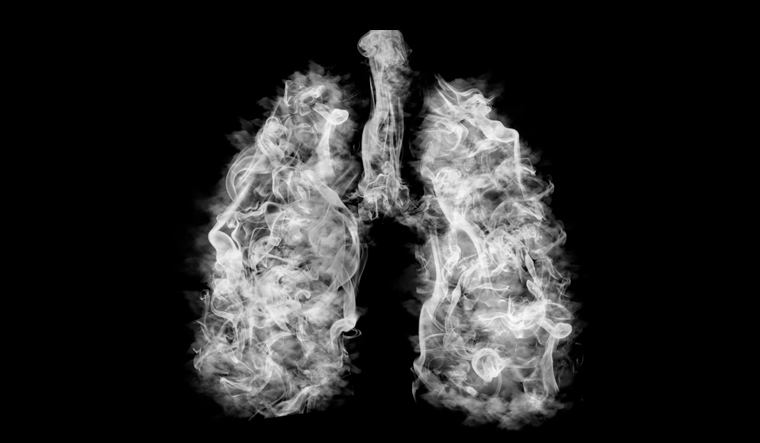A study of 300 lung cancer patients by a team of doctors from Medanta Gurugram suggests a possible increase in non-smoker lung cancer cases and a rise in incidence of lung cancer among women.
Dr. Arvind Kumar and team from Medanta Gurugram studied 304 lung cancer patients and the hospital has launched #BeatLungCancer campaign to create awareness on the disease which is currently responsible for the largest number of deaths due to any cancer in India.
According to the study, doctors found an overall increase in the incidence of lung cancer in men and women. According to Globocan, in terms of prevalence and mortality among women, lung cancer has jumped to no.3 from no.7 over a period of 8 years.
Nearly 20 per cent of patients were found to be less than 50 years of age. The trend showed lung cancer developing in Indians about a decade earlier than their western counterparts. Nearly 10 per cent of all patients were less than 40 years of age with 2.6 per cent in their 20s.
Nearly 50 per cent of these patients were non-smokers. Of this, 70 per cent of patients were in the younger-than-50-years age group and 100 per cent of patients under 30 years of age were non-smokers, the study found.
The study said more than 80 per cent of patients were diagnosed in the advanced stage of the disease when complete treatment is not possible, and the intent of treatment gets restricted to palliative.
The study also found majority of patients presented with Adenocarcinoma against Squamous Carcinoma that dominated earlier reports.
Adenocarcinoma forms when cells lining the outside of the lungs become cancerous, whereas Squamous Carcinoma impacts the cells that line the surface of airways. The former is known to have a relatively poorer outcome.
The study recommended that there was an urgent need to raise awareness about the risk of lung cancer across different sections of society. They suggested that effective measures to reduce tobacco consumption and control air pollution will help in controlling the rising graph of lung cancer cases. The study also recommended that measures must be taken to create awareness among the public, medical fraternity and policymakers.










